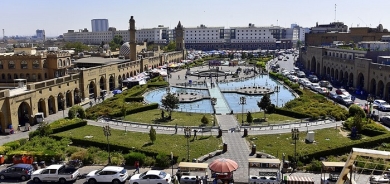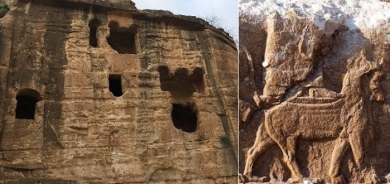Egypt postpones announcement of timetable for first presidential election

The committee had been expected to announce a date on Sunday, but judges on the committee told a news conference the decision was being delayed as they worked out how best to ensure Egyptians abroad would have enough time to vote, according to Reuters.
The Supreme Council for Armed Forces (SCAF) which took over from Mubarak in February last year has faced street protests and widespread demands they hand power to civilians sooner than the end-June deadline they had set themselves. Judges committed to meet the army’s deadline.
Farouk Sultan, the head of the committee, said the date would be set before March 10, when candidates can submit their formal nominations. The closing date for nominations would be April 8.
Several hopefuls have already announced they plan to run for office, including former Arab League chief Amr Moussa and ex-Muslim Brotherhood member, Abdel Moneim Abul Fotouh. The current Arab League Secretary General Nabil al-Araby is mooted as a consensus candidate, but he has said he has no such plans.
“The committee has decided to postpone announcing the schedule for elections until it can reach a solution that will allow Egyptians abroad to vote in a manner that will make their participation real,” Sultan said.
This follows hiccups in voting for the estimated 8 million Egyptians living abroad during the parliamentary poll. Many complained they did not have time to register and diplomats said they were not given enough time for the count.
Egypt has a population of 82 million.
The Egyptian foreign ministry has requested voters abroad have a two-week period to cast their ballot and counting take place over a week. The committee said it was considering this request.
“The committee will very soon determine the schedule for the presidential elections, while confirming the door will open for nominations on March 10,” Sultan told the news conference, adding voting and counting will be completed by the end of June.
Government ministers had suggested the election could be held sooner, with some suggesting late May. But Sultan told reporters on Sunday only his committee could set a date or give details of the race.
Ahmed Shams El-Din, a member of the presidential election committee told the independent daily al-Masry al-Youm earlier Sunday that “the election will start in the first days of June and will end in the last week of June if there is a run-off.”
“The president will be sworn in by the end of June,” he told Reuters. “Any run-offs will take place within the month of June, and by July we will have an Egyptian president.”
Last month, a panel charged with advising the military council had proposed to hold the landmark elections on May 16, a month earlier than the June deadline set by the Supreme Council of the Armed Forces, according to AFP.
Attempts at bringing forward the date come amid a series of nationwide rallies demanding the ouster of the SCAF. Activists accuse the junta of mismanagement of the transition, of human rights violations and of stifling freedoms.
There is a widespread belief that the SCAF will attempt to retain some sort of power after the transition.
Many analysts see Moussa as the front-runner but say much will depend on what kind of backing he can secure from the Muslim Brotherhood, which emerged as the biggest bloc after a parliamentary vote. Some politicians say they want a candidate who will also have the army's nod of approval.
Egypt has been ruled by military officers for six decades.
Moussa, a popular former foreign minister under Mubarak, has said he has reached out to Islamists.
Al-Araby, a well-respected and experienced diplomat, has been spoken of by the media and some parties as a potential challenger who could unite political factions wary of backing any candidate with links to Mubarak’s old era.
“I have no intention to run for the presidency, under any circumstances,” al-Araby told journalists on Sunday, after newspapers reported negotiations between parties to back him.
Under new rules approved in a referendum last year, presidents will be limited to two consecutive four-year terms.
Mubarak was ousted shortly before the end of his fifth six-year term. Most of his terms were secured via single-candidate referendums. In 2005 he ran in Egypt’s first multi-candidate race, but rights groups and others said the rules for that poll blocked any realistic challenge to the incumbent.
AL ARABIYA














